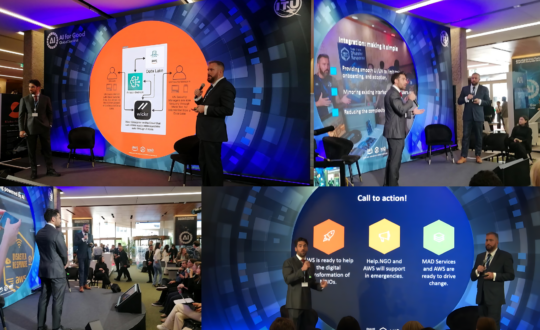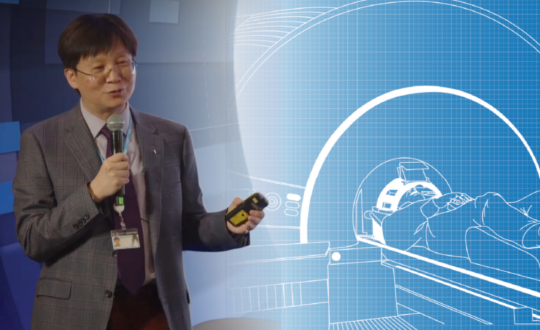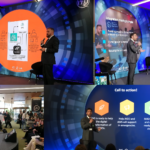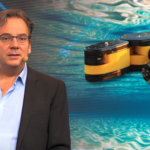At the AI for Good Global Summit, the AI start-up Stemuli with their groundbreaking generative metaverse gaming platform was declared the winner of the Innovation Factory Grand Finale in Geneva, Switzerland.
The year-long awaited Innovation Factory Grand Finale was launched with opening remarks by Her Royal Highness HRH Princess Beatrice (United Kingdom) and an innovative opening demonstration of a football match carried out by two teams of humanoid robots – NomadZ, from ETH Zurich.
The winner – Stemuli, is reimagining education with AI-tailored learning and immersive career training. Their game allows students to train for any career through realistic simulations.
“We believe that every learner deserves a highly engaging experience that should last a lifetime. We use personalised learning for every kid on the planet and we are on a mission to leverage ai and gaming for education and the future,” said Taylor Shead, the Founder and CEO of Stemuli.
They scale by integrating third-party educational content, creating engaging single and multiplayer experiences in their MMO world for their millions of unengaged learners.
Stemuli, emerged as the winner of the AI for Good Innovation Factory titled “Meet The Top North America Entrepreneur Finalists 2024,” held in April 2024.
Following the year-round online live pitching sessions, a total of 4 finalist start-ups joined at the Geneva’s International Conference Center (CICG) to pitch, in four minutes each, their innovative AI-powered solutions to global challenges to a distinguished panel of judges. From reducing water waste and redefining continuous learning to health start-ups revolutionizing mobility and accessibility.
After a year-long search for the top AI and robotics start-ups, the top four were invited to Geneva, Switzerland to pitch in front of a live audience at the Frontier Stage as the culminating event of day one of the Summit. Taylor Shead, a finalist and entrepreneur from America demonstrated how AI and gaming technology can redefine continuous learning and workforce development.
“It was a difficult decision, because all of the impressive organizations. But we believe in children and that in your solution is doing good,” said Heidi Bianca Roddenberry, the Board Chair at The Roddenberry Foundation.
The esteemed judges included: Heidi Bianca Roddenberry; Ulrike Tagscherer, the Chief Innovation Officer at KUKA; Seizo Onoe, the Director of the Telecommunication Standardization Bureau at the International Telecommunication Union (ITU); and Stephen Ibaraki, the Chairman & Managing General Partner at REDDS Capital.
The Innovation Factory Grand Finale was moderated by Pascale Davies, a Tech Reporter at Euronews and Brandon Andrews, a Co-Founder at Gauge.
AI for Good Innovation Factory is a UN-led pitching/acceleration platform to help start-ups grow and scale their innovative AI-powered and SDG-driven solutions, by providing them with opportunities of business matchmaking, mentoring, fundraising and more. The program is open to any innovative start-ups using artificial intelligence, machine learning, and advanced algorithms to achieve the UN Sustainable Development Goals. The event connects the finalists with world renowned AI experts and thought leaders to help scale their AI solutions globally.
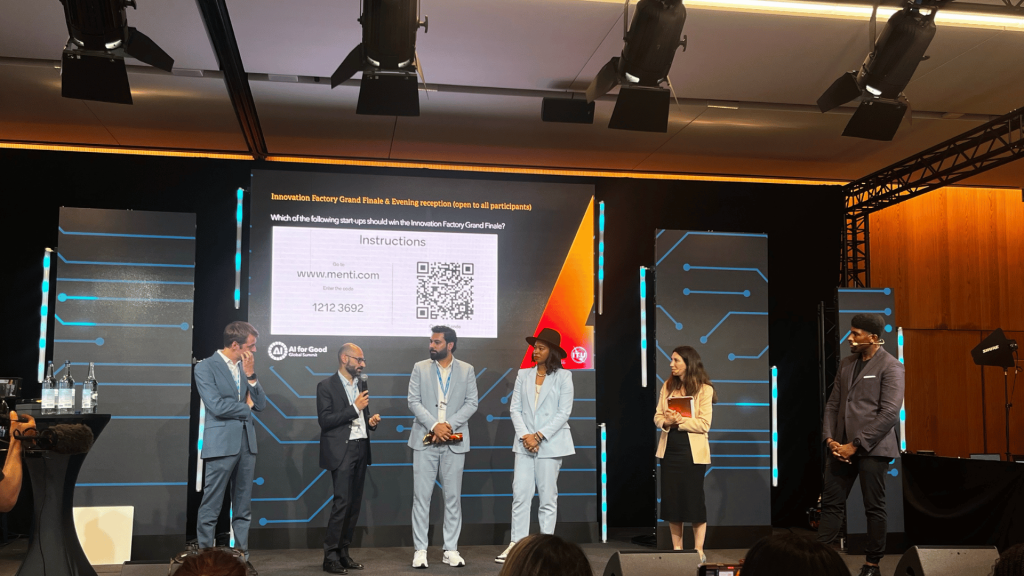
The competitors presented a variety of innovative ideas:
Finapp, an Italian start-up is optimizing irrigation strategy to environmental monitoring: where soil moisture is an indispensable element through their solution Finapp probe. The company makes its innovative contribution thanks to cosmic rays that measure water content into the soil in depth, on a large scale and in real time.
“We put knowledge in particles of physics to improve the sustainability for communities and the environment… Since it’s a new technololgy, its hard to make it available to everyone. But we invest money to make it more affordable,” they said.
…
Bioniks, a Pakistani start-up utilizing cutting-edge technology to create custom-fitted, functional prosthetics that aim to improve the lives of individuals with disabilities.
“In low income countries, we offer different prices. This is how we leverage the power of purchase to offer the solution to everyone,” they said.
Their commitment to innovation and social well-being is evident in their projects, such as the development of a bionic arm for a young child, showcasing their dedication to enhancing mobility and accessibility.
…
Wandercraft, a French start-up is revolutionizing mobility with the first commercial self-balancing exoskeleton, driven by AI to facilitate natural walking for people with mobility impairments.
“We have the science, we have the technology. We have the capacity to use AI for the benefit of people with mobility challenges,” they said.
The company’s mission is to make this advanced walking aid a part of everyday life, vastly improving the quality of health, increasing access to education and employment, and advocating for the essential human right to walk, thus fostering greater inclusivity across all facets of society.




